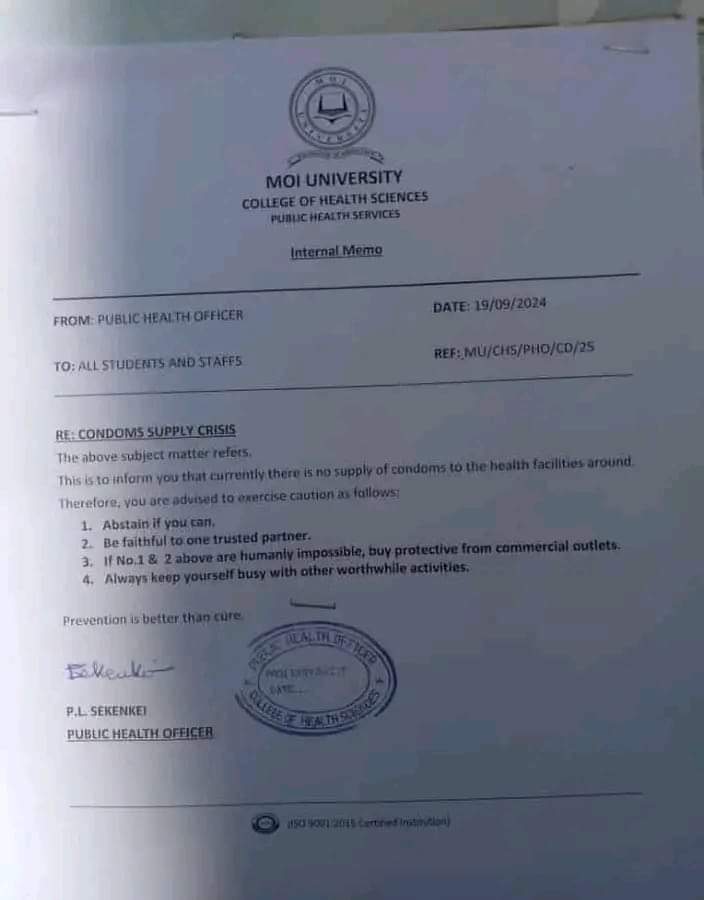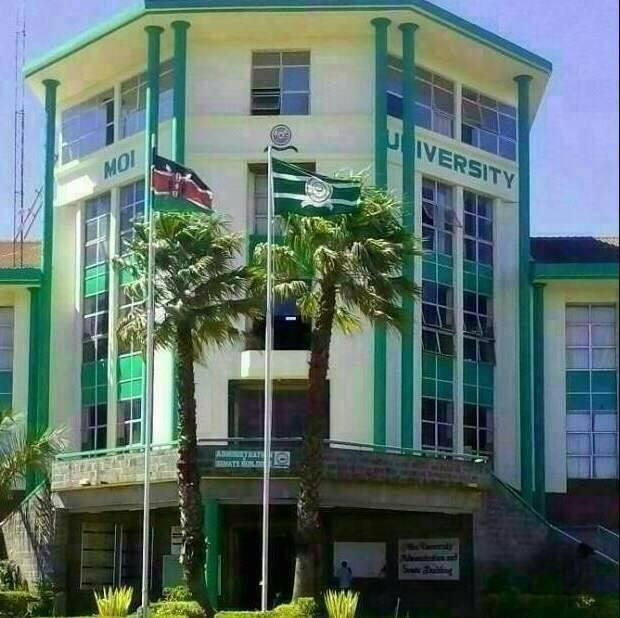By Kevin Sang, Uasin Gishu
Students at Moi University are grappling with a significant shortage of condoms, as revealed in a recent memo from the university’s Public Health Officer. This situation has raised alarm regarding sexual health, prompting calls for immediate action to ensure students’ well-being.
The memo, dated September 19, 2024, indicates that local health facilities have been unable to supply condoms due to supply chain issues.
In light of this scarcity, the university has advised students to consider alternative precautions, including abstinence, fidelity to a single partner, purchasing condoms from commercial outlets, and engaging in non-sexual activities.

This shortage poses serious risks for students, leaving them more vulnerable to sexually transmitted infections (STIs), including HIV/AIDS, and increasing the likelihood of unintended pregnancies. The repercussions of these issues could be profound, affecting students’ academic journeys and personal lives, with concerns about a potential rise in unsafe abortions also being voiced.
While condoms remain available for purchase at retail stores and pharmacies, affordability is a significant barrier for many students. With prices often beyond the reach of those from lower-income backgrounds, many rely on the free distribution of condoms from health facilities and the university itself. The current shortage severely limits access for these individuals, leaving them without viable options.
The implications of this shortage extend beyond physical health. Anxiety surrounding STIs and unintended pregnancies is likely to affect students’ mental health, further impacting their academic performance and overall well-being. As such, the situation is creating an environment of uncertainty and concern among the student body.
Abstinence, while a suggested option, may not be a feasible choice for everyone. It is crucial that all students, regardless of their personal circumstances, have access to the necessary resources to protect themselves and their partners.
Manoah Luke, the Welfare Delegate for the College of Health Sciences, expressed the urgent need for action, stating, “Free and affordable access to condoms is essential to safeguarding the health, safety, and academic success of the student community. The sooner this shortage is resolved, the sooner students can feel secure in protecting their health and futures.”
As the university works to address the supply issues, the student community remains hopeful for a swift resolution to this critical concern. Access to safe sexual health resources is not just a health issue; it is a fundamental component of ensuring students can focus on their education and personal development without unnecessary fear and anxiety.
End




